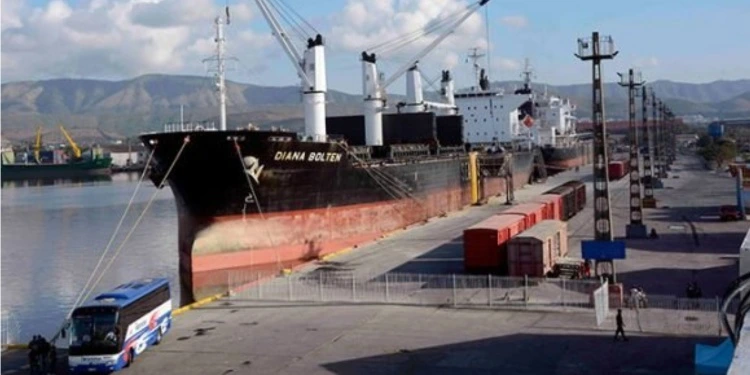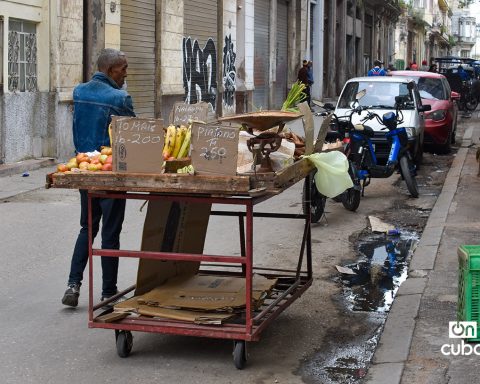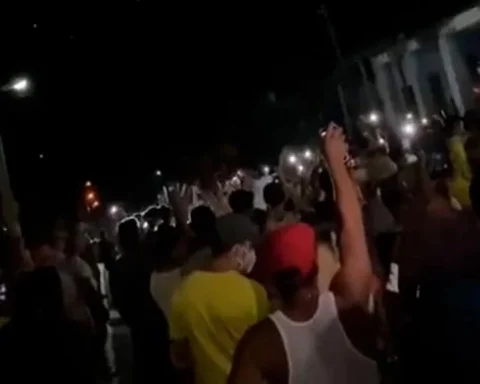MÉRIDA, Mexico.- A report from the official newspaper Workers It highlighted the crisis of the port system and the conditions to which workers in Cuban ports are exposed, with low salaries that do not correspond to the profits of the companies and poor working conditions.
Silverio, worker port from Havana, revealed that there is robbery at his workplace and said: “Yes, it’s true, there is robbery at the port. And if it is stolen it is because not everyone does what they have to do. How, if there is a kilometer of distance from the dock to the door, can someone travel that distance with a backpack loaded with ‘intrigue’ and no one sees anything? “Everyone knows the answer.”
As read in the note WorkersIn the port of Guanabacoa and in the rest of the country, some problems are repeated: workers’ complaints, conflicts, changes in management, lack of control, lack of hygiene in bathrooms and lockers, low salaries, little productive chain, poor attention to workers and “unspeakable food”.
Roberto Betharte, head of the Department of Social and Labor Affairs of the Cuban Workers’ Union (CTC), and Agustín Robert Sánchez, head of the National Union of Transport and Port Workers, agreed that workers receive low salaries despite that profits increase.
“In the Havana roadstead they have managed to multiply profits by up to 280%, but the loading and unloading operators have only obtained about 300 pesos – others less. The matter hit bottom in the first quarter of 2023, when they received nothing; while in the fourth quarter the amount did not even touch the average salary of dockers. The list did not play with the ticket,” Betharte said.
Some common themes
Added to the low salaries is the state of the bathrooms, which they describe as “critical, very difficult.” Although they invested to install lockers, they lack security and workers are robbed of their personal belongings.
Waiting time, in which operators are summoned to the center to wait for a ship to enter, has also become a problem.
“If ships do not arrive, their salaries and profits must be paid, and if not, the entity then has to declare it discontinued, which does not always happen. In the end, a great contradiction arises because the interrupter does not have the right to collect profits, while the person who was called and waits does. Added to this is that on many occasions the ship is charging stay. That is, the national economy loses three times,” said the union leaders.
Another deficiency common to the 13 ports of Cuba is the food, with small portions and poor quality.
In the port of Havana, direct workers have the right to it, and the weight and quality are terrible.
Without means of protection
In Santiago de Cuba, in addition, a worker acknowledged that they do not have means of protection, nor monetary incentives, and worker transportation is not frequent.
“Boots for work? I don’t even remember the last time they gave them, and regarding food, in recent times the ups and downs are frequent. On the other hand, what we have requested so many times is not materialized either here or in any other port in the country: that some payment be reestablished in freely convertible currency, now it would have to be in MLC. In the port we handle cargo that gives ‘hard’ money to the national economy,” he said.
To get to the port they must spend money that is not replaced and expose themselves to dangerous stretches where they can be victims of robberies.
“We come to the shift that starts at six in the morning, and many colleagues have to arrive on foot because there is only one workers’ transportation route; Others pay up to 100 pesos to the driver of a pisicorre to be punctual, but hours can pass and the shift ends without the trucks or the boxes arriving to load them,” said the man from Santiago.
As a result, they only get one lost day and “zero money in their pockets” if they have already exceeded the paid work interruption time according to the law.
A long-standing problem
Years ago, workers at the port of Havana publicly protested against the Cuban authorities demanding changes in the salary reform.
The stevedores at that facility were placed on one of the lowest pay scales in the so-called “ordering task”which caused the workers to end up on strike.
For the strikers, the salaries ordered by the authorities (2,420 pesos) did not correspond to the importance of the work carried out in the port nor with the effort they make daily to unload the food and basic necessities that arrive on the Island. .
















